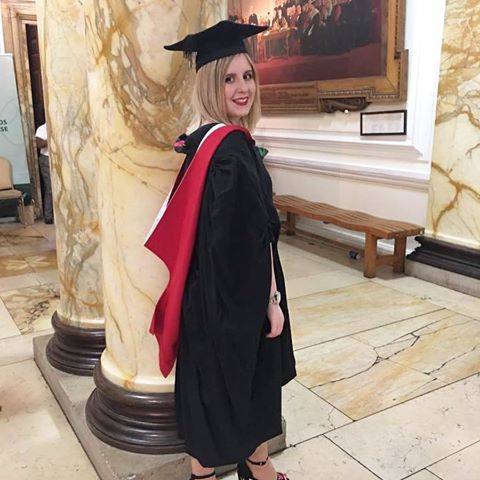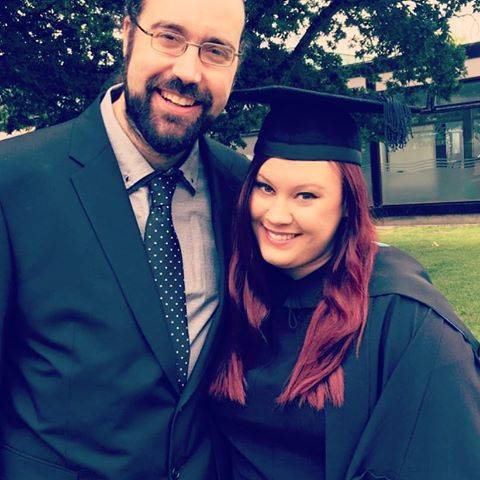沟通之前:希望您能花,三到五分钟的时间,观看我们的视频,对我们的能力,有一个初步判断。
克兰菲尔德大学毕业照展示

埃及计划为年轻研究人员设立一个科学院,以支持有前途的科学家,并鼓励他们在制定未来社会经济发展战略中发挥关键作用。
开罗科学技术研究院的凹痕。
这将是总部设在意大利的国际问题学术间小组支持的一个项目的成果。
“EYAS将对埃及的科学产生至关重要的影响,”侯赛因告诉世界新闻克兰菲尔德大学,并补充说,年轻的科学家可以在知识转移中发挥重要作用,并且可以继续努力。
我国对新技术有重大贡献。
侯赛因说:“他们将借此机会参与制定国家战略和未来计划,参与国际合作,与对方签订双边和多边协议,并代表埃及参加国际和区域论坛和会议。
”预计将成立四个小组,每个小组包括从事基础科学、工程、农业、卫生和生命科学等不同领域的10至15名科学家。
EYAS将颁发区域和国际奖项,促进联网,以加强知识转移、促进创新和提高科学意识。
该学院面向40岁及在研究中心和克兰菲尔德大学工作的科学家,他们展示了优秀的研究成果。
耸人听闻。
他们期望在教育和/或科学管理方面有经验,具有领导才能,具有优秀的沟通技巧,英语流利。
他们还应该对科学政策和科学传播感兴趣,并熟悉全球问题和国际关系。
在科学技术和以科学为基础的可持续发展方面的国际项目。
但是侯赛因说,向所有科学家敞开大门,以分享科学院的活动。
四名被接受的成员将被邀请参加9月份在中国天津举行的科学院间小组第三次青年科学家会议。
会议将与世界经济论坛的新冠军年会一起举行。
今年的主题是通过可持续性推动经济增长。
点评:这似乎是个好主意。
我愿意以任何方式帮助你(作为志愿者)。
易卜拉欣·卡塔布评论:国际问题学院间小组(IAP)热衷于支持和建立全球所有国家青年学院(NYA)以及全球青年学院(GYA)。
他们在2010年2月14-16日在柏林举办了一个研讨会,我作为一名来自巴基斯坦的年轻科学家参加了这次研讨会。
我们,来自大约22个国家的年轻科学家,建立了GYA,我们的重点是NYAS。
苏丹还成立了一个,巴基斯坦还应该在巴基斯坦科学院的支持下成立巴基斯坦青年科学家学院。
柏林GYA为NYA制定了详细的原则、目标、产出、措施等蓝图。
如果这个信息将在本网站中突出,我将感激不尽。
这也许有助于其他国家建立NYA。
GC克兰菲尔德大学拉合尔评论助理克兰菲尔德大学教授阿赫亚尔·法鲁克博士:苏丹青年科学家学会(SAYS)是附属于苏丹国家科学院(SNAS)的非政府组织。
2007年1月15日,在喀土穆克兰菲尔德大学地方病研究所举行的首次会议上,讨论并批准了创始成员为建立该学会而拟定的提案。
主要目标是汇集来自不同学科和背景的年轻科学家参加一个讨论基础和应用科学问题的论坛。
SAYS正在联系来自发展中国家的年轻科学家,帮助他们建立他们自己的学院,因为SAYS希望发起一个年轻科学家的院际小组。
因此,我们将非常荣幸地帮助建立埃及和巴基斯坦的青年学院。
Hisham Y. Hassan,分子生物学家兼秘书长,苏丹青年科学院评论:这是一个好消息。
我希望它很快就会成立。
我是一位埃及年轻科学家——实际上是一位药剂师。
我对纳米技术及其与制药科学的关系感兴趣。
有一天,我希望成为这个学院的一员,为我的国家和全世界的病人服务。
Wesam Ahmed Tawfik

International student officers are to call for urgent ministerial intervention to end problems with visas for hundreds of foreign students in South Africa, due to government incompetence.
Students who have tried to comply with visa rules have been criminalised and many arrested.
The crisis threatens to decimate postgraduate student numbers and is trampling on human rights enshrined in the constitution, the 19th annual conference of the International Education Association of South Africa, or IEASA, heard on Friday.
The international officers will also seek support in lobbying government leaders from the vice-chancellors’ association, Universities South Africa.
In a session on migration on Friday, angry international office staff spoke of having things thrown at them by frustrated international students who shifted the blame for visa woes onto them, and of having to spend great chunks of time trying to sort out visa problems caused by “chronic” ineptitude in the Department of Home Affairs.
Promises of improved service and processing of visas that have been pending for months are repeatedly made – and repeatedly broken.
The IEASA conference was held in Port Elizabeth from 19-21 August, hosted by Nelson Mandela Metropolitan University, and was attended by around 160 academics and professionals working in international offices from South Africa and around the world.
Scale of the problem South Africa’s higher education sector is experiencing a sharp drop in international student numbers, said Orla Quinlan, one of the session presenters and director of the international office at Rhodes University.
“We have feedback from one university that international student numbers have dropped by 600 this year due to these issues.
At another, rural-based university there has been a decline of 25% in international student numbers.
Visiting scholars, postdocs, international staff and university guests are also affected.
”IEASA asked institutions to send in numbers of students with pending visas.
Among 10 universities that responded were 854 pending visa cases, said IEASA staff member and fellow presenter Divinia Pillay.
The worst hit were the University of Pretoria with 348 cases, and the Cape Peninsula University of Technology, Nelson Mandela Metropolitan University and Tshwane University of Technology, each with more than 90 students with pending visas.
There were 226 students in the 10 universities with pending visa appeal cases.
Six months into the academic year, Quinlan said, one university had 607 international students registered on the basis of acknowledgement of receipt of a visa application.
At the end of April, the point at which the concession expired, the students had not received their visas.
Another university had 278 students in the same predicament.
During and after the session, international office staff from two universities spoke of students being arrested because they could not provide visas to the police.
One of the commentators was Jenny Lambinon, international and postgraduate specialist consultant at the University of Pretoria – she also described staff having objects hurled at them by frustrated students.
“We have also had cases of extreme behaviour, with students resorting to seeking asylum status while in the country, which is a distortion of that system,” Orla Quinlan added.
Some people had blamed the international offices for not being able to unstick visas, but in reality the problems were entirely out of their hands.
“We can shout and lobby and have meetings, as we have done with the Department of Home Affairs.
But unless somebody gets serious about this issue inside Home Affairs, it is out of our hands.
"Personal sufferingSerious delays in issuing visas regularly result in students enrolled for degrees being unable to return in time to continue their studies, legal students being rendered illegal, students unable to leave the country without being declared undesirable, and lack of freedom of movement within the country.
Divinia Pillay of IEASA spoke of being asked late last year by a deputy director of corporate accounts at Home Affairs to send through lists of students with pending visa applications.
She sent through an initial list of 330 students from 10 institutions.
“Six cases were resolved from that initial list.
” In March this year Home Affairs asked for an updated list, and one was sent through.
“We were promised that these cases would be resolved by 30 April.
We are still waiting.
”Further, said Pillay, at the beginning of February, a new directive had come into effect stating that all applications had to be made through visa facilitation services, or VFS, offices, with regional offices no longer accepting visa application documents.
But there is serious lack of capacity in the new VFS offices.
Other problems include lack of understanding of new visa regulations among staff in South African embassies around the world, and no consistency of staff handling visa queries.
There is also no system regarding handling the backlog of visas, and lack of communication regarding visa issues.
Students with visa problems “are very restricted and feel very insecure”, said Quinlan.
A lot of their bank accounts are automatically linked to the date of visa expiry, and if there is a delay in a visa extension a student’s bank account might be frozen.
“Now we have students in vulnerable situations where they no longer have access to resources.
There is the potential for them to be destitute.
"Quinlan said her office had dealt with some people with unusual visa dates – for instance, the visa would expire in March, which is early in the academic year.
With an efficient visa system this would not have been a problem.
“But no, it didn’t happen and the students were mid-stream with their studies, rendered illegal in the country and in an extremely difficult situation.
This has an impact on the ability of students to focus on studying, they live in fear and insecurity and they lack resources.
”For two students, Quinlan provided money for food and accommodation for six months before their visas – with much effort on the part of her office – were issued.
Visa botch-ups have separated families.
There have been situations, for instance, when a visiting lecturer would come to South Africa with a child, but the child would get a one-month visa and the lecturer a three-month visa.
“They are travelling together.
This happens at the port of entry.
But how can it happen?” Quinlan wondered.
Some international students were missing out on opportunities, being offered jobs on completing their studies but unable to accept them because they are living in a no-visa “twilight zone”.
Threat to internationalisationThe combined effect of the visa problems posed a “serious threat to the internationalisation of higher education”, said Quinlan.
“There is growing reluctance to include South African universities in international networks and programmes because people are beginning to realise that there are now big visa issues.
It is making us unattractive to work with and do collaborative research with,” said Quinlan.
“Also, a lot of people are experiencing this as intentional and it is feeding into the idea of South Africa being xenophobic.
There is no level at which this is helping South Africa or the higher education system.
”Cornelius Hagenmeier, a law lecturer and director of international relations at the University of Venda, described fertile grounds for legal challenges to the visa mess – to be found in South Africa’s progressive constitution, in laws and in numerous international conventions.
However, IEASA had concerns that such action could rebound and clog up the visa processing system further.
Instead, the decision had been made to continue working with Home Affairs to resolve problems and to call for ministerial intervention and the support of vice-chancellors to resolve the visa crisis.
